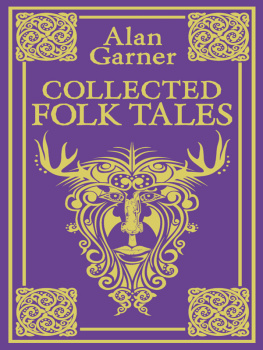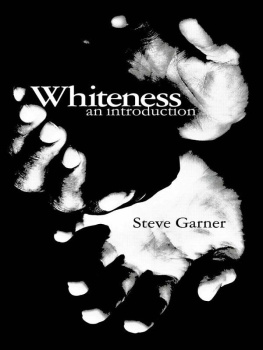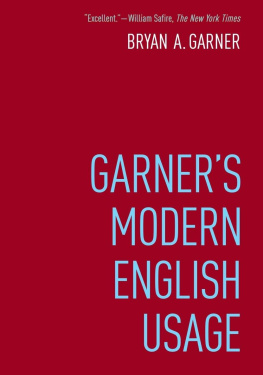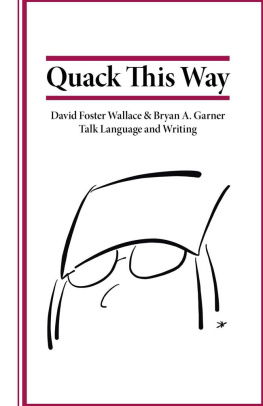Alan Garner - The Voice That Thunders
Here you can read online Alan Garner - The Voice That Thunders full text of the book (entire story) in english for free. Download pdf and epub, get meaning, cover and reviews about this ebook. year: 2010, publisher: Random House, genre: Religion. Description of the work, (preface) as well as reviews are available. Best literature library LitArk.com created for fans of good reading and offers a wide selection of genres:
Romance novel
Science fiction
Adventure
Detective
Science
History
Home and family
Prose
Art
Politics
Computer
Non-fiction
Religion
Business
Children
Humor
Choose a favorite category and find really read worthwhile books. Enjoy immersion in the world of imagination, feel the emotions of the characters or learn something new for yourself, make an fascinating discovery.
- Book:The Voice That Thunders
- Author:
- Publisher:Random House
- Genre:
- Year:2010
- Rating:4 / 5
- Favourites:Add to favourites
- Your mark:
- 80
- 1
- 2
- 3
- 4
- 5
The Voice That Thunders: summary, description and annotation
We offer to read an annotation, description, summary or preface (depends on what the author of the book "The Voice That Thunders" wrote himself). If you haven't found the necessary information about the book — write in the comments, we will try to find it.
The Voice That Thunders — read online for free the complete book (whole text) full work
Below is the text of the book, divided by pages. System saving the place of the last page read, allows you to conveniently read the book "The Voice That Thunders" online for free, without having to search again every time where you left off. Put a bookmark, and you can go to the page where you finished reading at any time.
Font size:
Interval:
Bookmark:
Contents
Alan Garner is an exceptional lecturer and essayist. This collection, taken form the work of more that twenty years, explores an enviable range of scholarly interests: archaeology, myth, language, education, philosophy, the spiritual quest, mental health, literature, music and film.
The book also serves as a poetic autobiography of one of Englands best-loved but least public writers. He hears himself declared dead at the age of six; he draws on the deep vein of a rural working-class childhood in a family of craftsmen who instilled the passion for excellence and for innovation and humour. The disciplines he learnt as a Classicist give a shape and clarity to that passion in this richly various book that would have fascinated his forebears, whose work and lives are also celebrated here. This most unusual, most candid, most vivid picture of an English family and its home, its countrys history, is also a devastating revelation of a writers own life. Alan Garners account of his mental illness will become a classic, and each strand of the book will be a source of fascination to anyone who has ever fallen under the spell of an Alan Garner story, as also to all who concern themselves with the craft of writing.
ALAN GARNER was born in Congleton, Cheshire, in 1934, and grew up in Alderley Edge, where his fathers family have lived for more than three hundred years. He was educated at Manchester Grammar School and at Magdalen College, Oxford, after which he began writing his first novel, The Weirdstone of Brisingamen, at the age of twenty-two.
His books include Elidor, The Owl Service (winner of the Guardian Award and the Carnegie Medal), Red Shift, The Stone Book Quartet (winner of the Phoenix Award of America in 1996) and, most recently, Strandloper.
STRANDLOPER
For Griselda

A person doesnt need to go to college to learn facts.
He can get them from books
Albert Einstein
Doings a hard school, but a fool will learn at no other.
Joseph Garner, 18751955, whitesmith
This book is made from various attempts to record the excitement that has attended life so far. Spread over some thirty years and now put together as one statement, they may show the progression, or otherwise, of a writers thought, and the environment that engenders and shapes, but must never appear in, the work.
The texts are the full texts as they were written, though not always as they were presented. Lectures are constrained by time and the patience of an audience, and articles are subject to an imposed length.
I myself have edited occasionally here, but, I hope, honourably. When dealing, over time, with linked themes, it is natural if for once something has been said definitively to use it again. Therefore in this context I have avoided the inelegance that would engender. There are other kinds of repetition that may be instructive; and I have held my pen and kept them in.
So here, for me, are the building blocks of what matters. It is a map of a journey that has been made possible by the friends, influencing minds and helpers that have brought me to this point. To try to list them would be prodigal of paper beyond the reckless, and would face me with choices to defeat Solomon; for I have been most fortunate in the net of fellowship through life and around the world. Better that both fellowship and trees stand.
A.G.
Blackden
14 January 1997
MY NAME IS Alan Garner, and I was born, with the cord wrapped twice round my throat, in the front bedroom of 47 Crescent Road, Congleton, Cheshire, at Latitude 53 09'40" N, Longitude 02 13'7" W, at 21.30 on Wednesday, 17 October 1934. My mother was a tailor, and my father a painter and decorator.
My mothers family were talented cranks, on every side; lateral thinking was a part of their equipment, and those that got away with it were respectable as well. Even the names are odd. There was a great-aunt Sophia Pitchfork; and a great-great-grand-uncle, J. Sparkes Hall, an inventor, of 308 & 310 Regent Street, London, Bootmaker to Her Majesty The Queen and Their Royal Highnesses The Prince and Princess of Wales. He designed the elastic-sided boot, and demonstrated his English Cottage or Test House (which became the traditional nineteenth-century workers kitchen fire-cum-oven-cum-boiler) at the Paris Exhibition of 1867. His brother, Edward, designed and built church organs in Birkenhead.
Perhaps a more typical gene was represented by the third brother, who was Professor of Systematic Memory, or Polymnemonics, on which he delivered lectures, copiously illustrated by Novel, Curious, Extraordinary and Interesting Experiments (Schools at halfprices).
In the eighteenth century, the Halls cover their traces, but documentary fragments and early photographs suggest that a pawnbroker Hall, of Plymouth, had fashionable tastes; and so my great-great-great-great-grandmother may have been West African.
My fathers family is quite different. They have been craftsmen for centuries. They have married locally, under strict cultural tabus, and have lived in the same house without a break of tenancy. My cousin lives there now. The house stands in a small area called The Hough, on the slopes of Alderley Edge, a wooded sandstone hill above the Cheshire Plain. The Edge is a Beauty Spot in summer and at weekends, but its long history and prehistory make it unsafe at all times. It is physically and emotionally dangerous. No one born to the Edge questions that, and we show it a proper respect.
So there are three main elements in me from the start. Families on the one side gifted, unstable, and, on the other, skilled, steady. And a hill that Garners have inhabited, and worked, for as long as anybody knows.
Born in Congleton, raised in Alderley, I have lived, since 1957, seven miles from both, near the Jodrell Bank radio telescope, in a mediaeval timber-framed house on a site that has almost certainly been occupied by the living for seven thousand years, since the Mesolithic period, and by the dead as well. The mound that the house stands on is one of a group of tumuli. If I have any real occupation, it is to be here.
Therefore, I have spent the whole of my life, so far, on the Pennine shelf of East Cheshire. It is an area that encompasses most of the landscapes to be found in Britain. Within twelve miles, I can move through fen, dairy and arable farms, to sheep runs and bleak mountain tors. And, in this particular place, I find a universality that enables me to write. Everywhere is special, in some way. It was not imperative that I should be born in Cheshire; but it was imperative that I should know my place. That can be achieved only by inheriting ones childhood landscape, and by growing in it to maturity. It is a subtle matter of owning and of being owned.
The landscape of childhood is itself unremarkable, for the child. Lack of any concept of things being other than they are found to be brings to childhood an innocence that hindsight can abuse. When we comment on the resilience of children, we should remember that what may now appear to have been brave or terrible was possibly unquestioned at the time. It was certainly unquestioned by me as an individual and by the generation of village children to which I belonged.
Next pageFont size:
Interval:
Bookmark:
Similar books «The Voice That Thunders»
Look at similar books to The Voice That Thunders. We have selected literature similar in name and meaning in the hope of providing readers with more options to find new, interesting, not yet read works.
Discussion, reviews of the book The Voice That Thunders and just readers' own opinions. Leave your comments, write what you think about the work, its meaning or the main characters. Specify what exactly you liked and what you didn't like, and why you think so.












